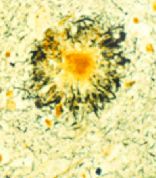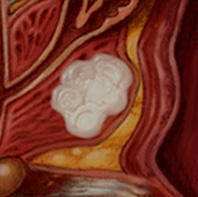 Adulteration of herbal products is common and a threat to consumer safety.
Adulteration of herbal products is common and a threat to consumer safety.
Researchers from Canada and India are the latest to investigate the integrity of herbal products. Continue reading The reality of herbal supplement contamination
 Adulteration of herbal products is common and a threat to consumer safety.
Adulteration of herbal products is common and a threat to consumer safety.
Researchers from Canada and India are the latest to investigate the integrity of herbal products. Continue reading The reality of herbal supplement contamination
 Dr. Claude Bouchard and colleagues from around the US and Finland tell us that people differ in their response to regular exercise.
Dr. Claude Bouchard and colleagues from around the US and Finland tell us that people differ in their response to regular exercise.
Sometimes these differences contribute to adverse changes in cardiovascular and diabetes risk factors, according to this study. Continue reading Adverse response to exercise
 The presence of the APOE epislon4 gene is a genetic risk factor for Alzheimer’s disease.
The presence of the APOE epislon4 gene is a genetic risk factor for Alzheimer’s disease.
Researchers at Washington University in St. Louis, Missouri, examined whether physical exercise alters the association between APOE gene and amyloid deposition in normal adults. Continue reading Lowering dementia risk in selected people
 Evidence for the association between cannabis and depression is inconsistent.
Evidence for the association between cannabis and depression is inconsistent.
Researchers at Radboud University Nijmegen, in The Netherlands, evaluated the potential influence of a person’s genetics on the cannabis/depression risk. Continue reading Cannabis and the genetic vulnerability for depression
 Researchers at the University of Colorado at Boulder studied whether religiosity moderated the genetic variance associated with problem alcohol use during adolescence and early adulthood. Continue reading Moderating effect of religiosity on problem alcohol use
Researchers at the University of Colorado at Boulder studied whether religiosity moderated the genetic variance associated with problem alcohol use during adolescence and early adulthood. Continue reading Moderating effect of religiosity on problem alcohol use
 Apparently, many people would, according to this study by researchers at Boston University School of Public Health, in Massachusetts. Continue reading If you were genetically susceptible to Alzheimer’s would you take supplements?
Apparently, many people would, according to this study by researchers at Boston University School of Public Health, in Massachusetts. Continue reading If you were genetically susceptible to Alzheimer’s would you take supplements?
 The haptoglobin (Hp) 2-2 gene is dysfunctional in people with diabetes and increases their risk of cardiovascular disease.
The haptoglobin (Hp) 2-2 gene is dysfunctional in people with diabetes and increases their risk of cardiovascular disease.
Researchers at Technion-Israel Institute of Technology, Haifa, Israel, tested the antioxidant vitamin E to protect diabetic patients with HP 2-2 from cardiovascular complications. Continue reading Reducing the risk of cardiovascular disease in people with diabetes
 Researchers at INSERM (Institut National de la Santé et de la Recherche Medicale), in Montpellier, France, tell us lifestyle changes can more than offset the risk posed by genetics, which, of course, can’t be changed. Continue reading Relative importance of lifestyle changes on the risk of dementia
Researchers at INSERM (Institut National de la Santé et de la Recherche Medicale), in Montpellier, France, tell us lifestyle changes can more than offset the risk posed by genetics, which, of course, can’t be changed. Continue reading Relative importance of lifestyle changes on the risk of dementia
 The SUNLIGHT (Study of Underlying Genetic Determinants of Vitamin D and Highly Related Traits) Consortium reports its results.
The SUNLIGHT (Study of Underlying Genetic Determinants of Vitamin D and Highly Related Traits) Consortium reports its results.
The abstract in The Lancet is poor, but here’s a summary of the details from Medical News Today. Continue reading Is there a genetic predisposition to vitamin D deficiency?
 The late physician/author of Jurassic Park, State of Fear, and ER was once asked by Scott Burgess if genetically modified food (GM) is a boon or threat to the world.
The late physician/author of Jurassic Park, State of Fear, and ER was once asked by Scott Burgess if genetically modified food (GM) is a boon or threat to the world.
Continue reading Michael Crichton and genetically modified food


 Dr. Andrew Levy from Technion-Israel Institute of Technology in Haifa makes the case for a new pharmacogenomic blood test that can be used to identify diabetes patients at highest risk for cardiovascular disease.
Dr. Andrew Levy from Technion-Israel Institute of Technology in Haifa makes the case for a new pharmacogenomic blood test that can be used to identify diabetes patients at highest risk for cardiovascular disease.
Presently, medical costs of treating cardiovascular complications of diabetes are more than $100 billion per year in the US. Continue reading A pharmacogenomic-CAM connection in diabetes
 Researchers have cloned a gene from wild wheat that increases its protein, zinc, and iron content. The impact of this research could improve nutrition, worldwide.
Researchers have cloned a gene from wild wheat that increases its protein, zinc, and iron content. The impact of this research could improve nutrition, worldwide.
Continue reading Increased protein and mineral content from genetically engineered wheat
![]() Here’s a list of research designed to allow grains to offset the effects of global warming. Thanks to genetic engineering, some are in development, while others are already being used.
Here’s a list of research designed to allow grains to offset the effects of global warming. Thanks to genetic engineering, some are in development, while others are already being used.
Al Gore, take note.
Continue reading Worried about global warming?
![]() Northern California shoppers were divided into two groups: “regular organic shoppers” who buy organic produce on a typical grocery-shopping trip; and “nonregulars” who don’t. They were asked how much more they would pay for four different produce items.
Northern California shoppers were divided into two groups: “regular organic shoppers” who buy organic produce on a typical grocery-shopping trip; and “nonregulars” who don’t. They were asked how much more they would pay for four different produce items.
Continue reading Are we willing to pay more for organic food?
 Here is an update to an earlier post that chronicled a problem with genetically engineered cotton in China where it was necessary to use pesticides to control new pests.
Here is an update to an earlier post that chronicled a problem with genetically engineered cotton in China where it was necessary to use pesticides to control new pests.
Skeptico reviews the problem, the possible reasons for it, and the fix being use in the U.S.
 Chinese cotton growers were among the first farmers to plant genetically modified (GM) cotton to resist bollworms (photo). Now, the substantial profits they reaped for several years by saving on pesticides have eroded.
Chinese cotton growers were among the first farmers to plant genetically modified (GM) cotton to resist bollworms (photo). Now, the substantial profits they reaped for several years by saving on pesticides have eroded.
The reason, according to Cornell University researchers is that other pests are attacking the GM cotton.
![]() The Washington Post reports, “U.S. commercial supplies of long-grain rice [were] inadvertently contaminated with a genetically engineered (GE) variety not approved for human consumption.” There’s nothing new here. The group, Californians for GE-Free Agriculture has chronicled a series of these events.
The Washington Post reports, “U.S. commercial supplies of long-grain rice [were] inadvertently contaminated with a genetically engineered (GE) variety not approved for human consumption.” There’s nothing new here. The group, Californians for GE-Free Agriculture has chronicled a series of these events.
The problem is that those who plant GE crops are supposed to keep the stuff in their own fields and products and not let it mix with other non-GE foods.
What are the risks?
Continue reading Genetically engineered rice “contamination.” So what?
![]() Global biotech crop acreage grew to 222 million acres in 2005 from 7 million in 1996. Except for this, and the growth of anti-genetically modified (GM) foods websites, not much has changed pro or con.
Global biotech crop acreage grew to 222 million acres in 2005 from 7 million in 1996. Except for this, and the growth of anti-genetically modified (GM) foods websites, not much has changed pro or con.
The hyperbole continues. Last Sunday protesters damaged two GM maize testing fields in France. A few days earlier, Greenpeace activists chopped a giant cross through the maize. In case you don’t get the message, that’s the universal danger sign for “contamination.”
For some perspective, here is an article I wrote 6 years ago.